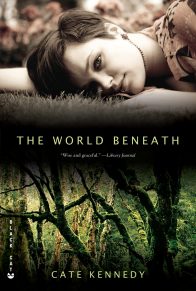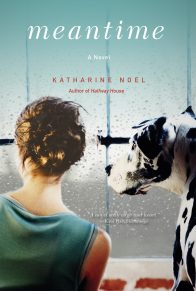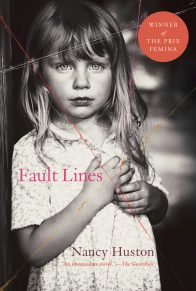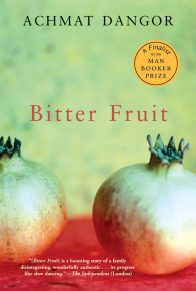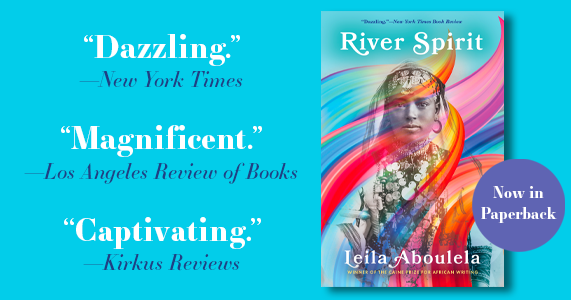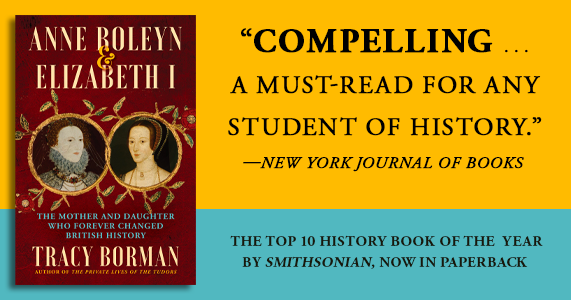With the movement the boat disappeared beneath them and Catherine caught him in her arms. He struggled and splashed, climbing up her, his hands over her face, pulling her hair as if he had forgotten who she was. The water churned around them, sending waves to the banks and back again into their faces and mouths.
She held him tighter, holding him up as high as she could and at last he was quiet. He was quivering and slippery. She tried to say things that would calm him.
Treading water, Catherine could feel gentle invisible things stroking their fingers, or fins or lips over her legs. Then her feet found a place to stand. It was soft, her toes sunk in and she leaned back against the push of the river. The coldness lapped at her chin and her hair floated out like a cloud of weed. Jack’s arms around her neck were too tight but it was not hard to hold him, the water took his weight.
She was standing on the bottom but she could not feel the riverbed in front or behind. There was only a little mound of silt under her feet. She could not move; Jack was too big to swim with and he held too tight.
It was quiet under the trees. The water stretched out around them, smooth now and peaceful. Far away on each side were the banks, and it was strange to see all the secret places under the edges of the river, the wet dark doorways of water creatures, their little harbours and jetties.
The sun going down made slanting gold across the brown water lighting up the billions of microscopic floating things that gave the river its colour.
Jack stopped crying.
“What are we going to do?” he said. He let go with one arm and patted the water, then cupped his hand under a patch of sunlight.
Catherine said, ‘do you want a story?”
Jack did not answer and Catherine let her head lean back on the water. She looked up at the trees, layers and layers of yellow and copper and brilliant green. That is the roof and the river is a pillow, she thought.
Her arms were numb and Jack was slipping down. He rested his head on the top of hers and sometimes whispered things to himself.
Catherine thought of the boat sunk beneath them somewhere, resting like a turtle on the bottom. She felt sorry for the boat and sad that that no one would ever see it again. They were the last two people on earth to sail in it.
1946
Xavier and Adelie
When old Johannes Sevier died the legacy he left to his youngest son seemed a fortune. Xavier wanted to travel. He had not inherited the vineyard, nor would he have a place of any importance in the family business, so there was no reason to stay. He and Adelie could go anywhere they wished.
Adelie had always wanted to see England and although they planned to go further, perhaps to California, the first stop would be just across the Channel.
The war was over and they married. Celebration on celebration. The world was a beautiful, free, welcoming place and in spite of the devastation they passed from Alsace to the coast, nothing could dampen their spirits.
Adelie had cried when she kissed her mother and sisters goodbye at the station, and for a moment Xavier felt chilled by the responsibility of his promise to take care of her, but they could not be sad or anxious for long. They leaned close, watching the countryside rush past, and felt excitement at all the unknown adventures ahead and all the minutes and hours and years together.
London was not grey mist and sullen people as they had been told it would be. The month they passed there was warm and sunny and Londoners were more like Parisians than the people they had left behind in Alsace. Clothes were stylish and the Thames sparkled.
The war had wounded the city. Where once had been graceful grey-brick terraces there were piles of rubble, broken roof beams and smashed furniture. Sometimes a wall was left standing with its doorways and fireplaces in mid-air, the wallpaper showing to the passersby with ghost shapes where pictures and furniture had been. Adelie thought of the husbands and wives just like Xavier and herself who had decorated these rooms and sat together by the firesides.
But there were plenty of places that the war had not touched. And even when they turned a corner and came upon a bombed building, grass and wild flowers had already taken root.
They stayed in a small hotel near Charing Cross. Their room had a balcony and with the doors open they could hear the noise of cars, shouts of street vendors and the rumble of trains. The habit of sleeping for a while after lunch was not left behind in France. They would lie in each other’s arms in the afternoons hearing the sounds of the foreign city through dreams of familiar hills and vineyards.
In the evening they would find a restaurant, looking for the biggest, busiest, brightest they could find. They’d thought only Paris had places like these: high ceilings, chandeliers and curtains that belonged in a theatre – great swathes of velvet and silk, draped and tasselled – scores of white linen tablecloths, silver, crystal and fresh cut flowers. The noise of cutlery on china and the conversation of diners were sometimes so loud that Xavier and Adelie would have to lean towards each other to make themselves heard over the din. But most of the time they were happy to watch. They loved London life, cultured and fashionable, worlds away from the dull tranquillity of their home.
Adelie was very beautiful in her new dresses and Xavier noticed the stares of admiration. He would struggle with English and the waiter would find it difficult to concentrate on his faltering words without being distracted by Adelie’s lovely face. But Xavier did not mind, she looked only at him.
They decided to see more of England and forgot their tickets to New York. They booked seats on a slow train from Paddington to Devon. It meandered southwest from town to town, eventually reaching the coast. Adelie wanted to swim in waves, it would be the first time, and Xavier wanted anything that made her happy.
The journey was long and slow. In the afternoon Adelie slept against Xavier’s shoulder. She woke when the movement of the train stopped. They were at another country station. Outside the open window there was the sound of birds and the soft hiss of the train. The platform was empty.
“I’m thirsty,” Adelie said. “Is there anyone selling water or tea?” Xavier jumped down on to the platform, looking up and down then walking away towards the ticket office while Adelie leaned out, anxious that the train might leave without him.
And it did. The train began to move and Adelie, after calling his name twice, jumped down from the carriage and waited for her husband to return with her tea.
They stood together without luggage, or even Adelie’s handbag, on the sunny, deserted platform. They had no idea of the name of the place – it was still painted out.
Xavier took her hand. There was no one at the ticket office so they walked out into the lane: in one direction was a bridge and in the other a curve uphill and away out of sight. Bees buzzed in and out of flowers. It was warm and quiet.
On the bridge they leaned over the stone balustrade. The river beneath them was broad and slow; bright weed undulated over the stones. They watched the glittering water slip into shadow under the bridge, and shoals of small brown fish basking in the shallows.
Xavier loosened his tie. Adelie shook her hair, letting the breeze blow through it. The sound of the train faded to nothing.
They were pleased to be having a small adventure. The plan was not unduly upset; they would simply wait for another train and catch up with their luggage further down the line.
They did not know that the next train would not come for six days and by that time Xavier would have bought a house, Adelie would be content to swim in the river, and this place without a name would be their home.
1958
Sarah
Her mother said a husband would come along soon enough. A sixteen-year-old woman so capable would have no trouble at all. But until then Sarah Kathleen was not a child any longer, she must pull her weight in the family, bring in some cash, and learn things that would be useful for her future.
Sarah was glad to help but she liked school and was sorry to leave. She had been told that she had a good brain and a sensible attitude so long as she did not get above herself with those looks – she must be watchful of becoming bold. And she was a good pupil when she curbed her tendency to wear the elbows off her arms with dreaming. It was decided she should be of service as a teacher or a nurse.
Sister Perpetua said, but quietly because it was an unusual thing for a Sister to say, that Sarah could be whatever she put her mind to, even a lawyer or a doctor. A woman could make anything of herself these days, there was no limit. The good Lord had given her the wherewithal, and Sarah should go to university.
But that was not possible now. Sarah had a job and she was leaving home. It was so exciting that going to university could hardly be better.
The doctor had chosen her from lots of other girls, he said, and she was the one he wanted. He had no wife to look after him or a pretty daughter like her. Sarah felt sad for him.
His advertisement said his assistant would keep the house tidy, take messages, cook meals and generally do anything that would make his life run more smoothly. She would live in his house and bring some order and comfort back into his life – as only a woman can, Sarah’s mother said.
The interviews were conducted at a surgery in town. It was not the doctor’s office but he said this was easier for prospective employees. Sarah did not know what he meant. She wore her fawn coat buttoned all the way to cover a dress she felt was too young for her, and her mother’s nylons to look her best.
The doctor was elderly. His eyes watered and his hands shook a little. Sarah would start in three weeks.
A car came to collect her and people in the street stood at their front doors to watch and to wave her off. Sarah had never felt so special. She thought the car would drive her to another town, smarter than this one probably with tall, red-brick houses, clipped hedges and iron railings. Instead they turned off the main road when they were still surrounded by fields.
There were cottages and a grey stone chapel. The car stopped outside an ugly, peeling house. The nettles beside the path were waist high, there were leaves in the porch and a row of empty milk bottles.
The place was not at all how Sarah imagined it would be. Now she knew why the doctor had said nothing about where he lived – no one would want to come here, they would die of loneliness in this miserable place.
But the doctor was kind, and it seemed at first as if there was a mistake and he would be looking after her. He had put flowers in her room and a special, expensive bar of soap by the washbasin. There were pink towels laid out on the bed.
Sarah stood by her suitcase with the soap to her nose, inhaling its scent. The room was her own, no little sisters to waste her lipstick and scribble in her books. The doctor said he would make her an omelette when she was ready. It took two whole eggs to make an omelette.
She should give things a chance, stay a least a week. That’s what her mother would have told her.
The doctor sat in a fireside chair and Sarah ate at the dining table alone.
“I’m sure you will find plenty to interest you here,” he said. Sarah did not know what to say but she forgave the doctor for not understanding – after all he had no daughters of his own.
“This is delicious,” she said. ‘my mother says most men don’t know a frying pan from fairy lights.”
The doctor smiled his watery-eyed smile and nodded and watched her eat.
“What a wise woman your good mother is,” was all he said. He poured her a glass of red wine and she wondered whether it counted as a sin to drink it or a worse sin of ingratitude if she did not.
They didn’t speak again until her supper was finished and then they washed up together while Sarah talked about her family and the Sisters and her best friends, Maureen, Patsy and Joan. The doctor wiped the plates slowly, listening carefully and asking questions about the things she was telling him. Sarah wondered if she was talking too much.
“Perhaps you would like to look at Jos’phine’s books,” the doctor said when they’d switched off the kitchen light. “You’re very welcome to borrow anything you’d like to read.”
“Thank you,” said Sarah, wondering about Jos’phine.
They went up to the top of the house to a little slant-ceilinged room. There was a pretty bureau and a lamp with butterflies cut out of the parchment shade to look as if they had settled there with their wings fluttering. Sarah could imagine writing love letters in this room.
As if she had asked, the doctor said, “Jos’phine was my wife. She died a while ago but we still talk often.” He must have noticed Sarah’s look for he added, “I expect that sounds odd to you, my dear. When you’re older you’ll understand.”
Although she had never been in love, Sarah felt that she could understand how you might talk to someone you long to be with, especially if you never would be again, not until you were reunited in eternal rest in the loving arms of the Holy Father in Heaven. There was no harm in it at all. She liked the doctor and she felt happier than when she arrived. Perhaps she would not die of loneliness after all.
When Sarah woke she remembered where she was even before she opened her eyes. There was a different smell to the pillowcase and a weightiness in the blankets that could not have been her own. She turned over and the warmth of herself, familiar and comforting, the same as her sisters’, mingled with the strict, polite smell of clean linen.
She listened; the house was so quiet. If she lay perfectly still there were tiny, thin sounds far away. If she moved, she filled the room with noise, the dry hiss of her skin against the sheets, the creak and ping of bed springs. The room was brown shadows. A slice of sunlight split the square of the curtains and made a line like chalk across the floor.
There was a cup of tea on the table by her bed – it was cold and little cracks crazed the surface as if it had set hard. Sarah cupped her hand to catch the drips and drank it down in one. She thought of herself sleeping as the doctor must have seen her when he brought in the tea, and she wondered if he was in the house somewhere.
She dressed, hearing the sounds she made as if she were someone else – the sounds she had never noticed before: the click and rustle of buttons and cloth, the buzz of a zip, like an insect caught inside a jar.
She opened the curtains. Her window looked over a village green with a stone memorial and a bench. Around the green were cottages and houses, all different, and the chapel. There was no one walking by and no traffic.
Sarah sat down at the dressing table to brush her hair, holding up a silver hand mirror to see the back as women in films sometimes do. She laid down the brush and mirror exactly as they had been arranged on the piece of lace.
Her face in the dressing-table mirror was new and unfamiliar, like a photograph she had never seen before. She sat perfectly still and studied the face of the girl who gazed back into her eyes. In the morning light this girl’s skin was white and her hair was polished like wood. Behind her in the background was an old-fashioned room – dark furniture and wallpaper with large flopping flowers that made Sarah think of hens in the wet. The rug by the bed was thin and colourless with the years and years of feet pressing into it, and there was a stain round the light switch where fingers had touched the wall, turning the light on and off, on and off, a thousand times.
She wandered through the house, looking in all the rooms and trailing a finger in the layer of dust. The house was filled with furniture. Outside, birds were singing but they were muffled by the heavy silence. Everything was a shade of tea brown, even the watery light, except the bright sky outside the windows, blank as clean white paper.
In the sitting room there was a line of photographs propped on the mantelpiece. Some were new, glossy and white-edged, others were beginning to bend, and some had curled right over and slid on to their backs, too aged to stand up alone. Sarah saw the faces of babies and children and smiling adults, and there were messages written underneath: “With our grateful thanks, Margaret and David, and our precious daughter Susan Barbara, October “55”, and “Thank you doctor, George, Dorothy and the children. Baby John Edward George, born 5th May 1957.”
Sarah studied the faces of the parents, searching for what it was like to be old; and the babies displayed to the camera like bouquets of flowers or baskets of fruit.
There was a woman in a white summer dress holding a baby in a lace gown. The woman was very beautiful, blonde and smooth-skinned. Her lipstick made her mouth look dark in the picture, and she wore pearl earrings and a little necklace that showed up against her throat. Her smile was shy, like a girl’s, which was unexpected for someone so elegant. Sarah wondered how she managed to look neat and peaceful when she had a tiny baby to look after – her mother said it was the most exhausting thing on earth second to getting a man to be tidy. Sarah turned over the picture. ‘dear Edward and Jos’phine, with our love, Xavier, Adelie and Josef Jacques Sevier, 12th August 1951″
Sarah’s first weeks were not what she expected. She had imagined sitting at a desk to welcome the patients, then showing them into the doctor’s office with poise and courtesy to put them at ease. They would confide in her as his personal assistant, maybe even trusting her more because she was a woman and more aware of unhappiness. But the doctor visited his patients and was out for much of the day.
It was only in the evening after supper that she helped him with his work, when the doctor would prepare medicines for the next day’s house calls. He unlocked the glass cabinet in his study and measured coloured liquids from the rows of bottles. He weighed out minute heaps of white powder and showed her how to make pills in the little brass press.
The medicines were wrapped in brown paper and sealed with crimson wax imprinted with the doctor’s gold ring.
When he took off the ring and put it in Sarah’s hand it was warm and heavy. The letters E and J were entwined in curling script: Edward and Jos’phine.
Sarah knew she would love only one man in her whole life and it would be for ever, like the doctor and his wife. Edward and Jos’phine.
In the daytime when Sarah was alone in the house, there was time to read Jos’phine’s books and polish the step and bake cakes for tea. She cleaned the house and cooked. She chopped down the nettles in the front garden and swept leaves from the porch.
When the weather was fine she went for walks along the lanes and discovered that she liked the countryside – it was not at all bleak or full of dejected poor people, but it was not like a postcard either, dotted with arrangements of white woolly sheep and jolly farmers.
The lanes were deep and tangled, noisy with birds and the rustles of quick, shy creatures.
1986
Anna
Anna slept for most of the journey home. Through Spain, through France, the ferry, the motorway. Lights seeped their sulphur through her eyelids and the drone of the engine would come and go, her ears popping as if she were underwater. The heat of the Spanish sun was still in her skin and she did not feel cold until they pulled up outside the flat.
“What shall we do?” she said once when she woke. Thomas looked across, his face blank with the hours of driving. He said nothing but took her hand and rested it under his own. When they touched there was the memory in their fingers and palms for a second or two, then a pause and stillness that flattened to nothing.
Thomas moved out and stayed with a friend, although he and Anna still saw each other or spoke every day. They both became stretched thin by the days apart.
Anna could not eat, feeling sick, but her eyes shone. Her stomach wrenched at food and at the loss of Thomas, but secretly she felt a quietness like a smooth pearl inside her that was unconcerned at the anguish in her head.
Thomas came immediately when she said she was going away. He stroked her face but did not dissuade her. Neither believed it was really goodbye – it was like pretending the end of a love story they both knew was not real.
When he had gone Anna found a map and a pin – another game, another scene from a story. She stuck in the pin and it was where she was; that didn’t count. The next place was too flat, she wanted hills and valleys. Once more, this time, this was it. Small black letters were right under the pin which Anna read, then read again. She laughed at the name, Cameldip – is it a real place? But she could not cheat a third time.
Beside the name was a winding blue line, a river edged with trees drawn like puffy clouds on stalks. There was a black railway and a cross for a church. The place looked plain and uncomplicated, it would not notice her. This was where she would bring up her child.
Anna was not practical. Her mother and her sister said so, although Thomas never commented in all the time they lived together and Anna had begun to think that perhaps they were wrong.
The pin made its choice but then gave no guidance on what to do next. Anna could not work out how to organize moving – a house to rent, money to earn, friends to fill the loneliness, and a child that would fill everything. This time she must make a proper life that wouldn’t slip away from under her. It felt as though the years with Thomas were sinking, down and down, until soon they would not hold her up any more.
Anna visited the place later that week. It was a hot September day. Her skin was still brown from the Mediterranean sun and she was comforted by the searing heat, it reminded her of being with Thomas. It had been seven weeks.
Now she was here she realized she should have gone first to an estate agent in the nearest town to ask about rental and to buy a local newspaper. It was lunchtime and the village shop was closed, so Anna went for a walk.
There was a pub at the end of the main street before the road became a leafy lane. Creeper grew across the windows and hung down over the door. The place looked derelict. There was a footpath to the side leading to a river and she could see the water sparkling, pale cool green through the trees.
The path followed the edge of a garden behind the pub and she saw that perhaps the place was not empty after all: there was a freshly dug vegetable patch and the flower beds were banks of blooms. There were arching shrubs and ornamental trees. On the far side was a building partly hidden by trees, its roof covered with tarpaulin below which were pillars of white wrought iron. It looked like an aviary but there seemed to be no birds inside; the doors were wide open.
On the lawn two colossal shire horses, their legs folded beneath them and their eyes closed, basked in the sun.
Anna sat by the river for a while with her feet in the water and wrote a postcard which she gave to the girl in the shop before she left.
“You want to live here?” asked the girl, incredulous, reading the card.
Two weeks later there was a phone call and a woman said, “I saw your card in the post office. I have a large house and I live alone. There’s plenty of space, would you be interested?”
It was not what Anna had in mind. She imagined a cottage of her own where she could be untidy and comfortable with a garden full of toys and a dog. But she said, “Yes. When should I come to look?” They made an arrangement and Anna liked the woman’s voice. They exchanged numbers and names.
“Anna,” said Anna.
‘macKinnon,” said the woman.
The house was four-square grey stone.
When they met at the door the woman took her hand and smiled so warmly that Anna thought she had taken her for someone else. But she said Anna’s name before they’d had a chance to speak, so there was no mistake.
Isabel MacKinnon was tall. Her grey hair was pinned up in a ragged bun and her face was lined, but she had an easy elegance even in her faded cords and man’s shirt.
They had tea in the flagstoned kitchen with the door open to the garden. The conversation slipped easily from one thing to another and Anna felt drawn close as if the woman saw in her something that no one had noticed before, something overlooked even by those who said they loved her.
Isabel MacKinnon smiled and listened when Anna spoke; perhaps this was what it was to have someone take pleasure in your company with no effort or duty.
“I’ll show you to your room,” said Isabel as if Anna had already come to stay.
Anna laughed from surprise when she saw the room. It was a tree house. A walkway from the landing window, like a rope bridge in a jungle, joined it to the house. The tree was ancient and its closeness to the walls had made it grow like a broken parasol. On one side the branches were crooked and twisted with the discomfort of touching the stone, on the other they spread out in an arc of shade as even as if it were drawn on the grass with a compass.
“It can’t be cut down,” said Isabel. “It’s the foundations of the house.”
The trunk inside the tree house was still covered with bark. The floor and walls and ceiling were polished smooth, thick planks of some creamy wood. There was a rug, a lamp on the floor and a mattress piled with blankets. Anna could hear birds in the branches above her.
“It’s too cold in the winter, but this is a perfect place to sleep in summer,” Isabel said, holding out her hands to Anna as if she were giving her a present.
They could stand up only in the centre of the room where the roof was highest. There was a window in the roof and another low down near the floor, and they knelt to look out. A few overdressed sheep were dozing below them in the shade of the tree. There were no flower beds in Isabel’s garden, and meadow grass reached down to the trees on the banks of the river. There was a grassy mound like an earthwork near the trees.
“What is that?” asked Anna pointing.
“It’s a blackhouse,” said Isabel getting to her feet. Anna would have asked more, but Isabel was already stepping on to the rope bridge back to the house.
They went up to the attic room that would be Anna’s in the winter. Downstairs there was a sitting room and a long, empty room with a polished wood floor and glass doors opening on to the garden.
All the time Anna imagined what Thomas would think if he were with her, but Isabel was one of the few people that Anna did not feel would be happier, would like her more, if Thomas were there too.
She thought Isabel might ask why she was coming to the village when there was no one here she knew, but Isabel asked nothing.
Anna didn’t ask anything either. In spite of her warmth, Isabel was not easy to question.
A man came into the kitchen while they talked. He seemed to work for Isabel but she didn’t introduce him or make any comment after he’d gone. It was the only time Anna felt uncomfortable; Isabel hardly looked at him. Anna thought how unbearable it must be to be disliked by her.
They made plans for the move and when they said goodbye Isabel kissed her. Anna had thought before she came that she must tell Isabel about the baby, but she didn’t.
Copyright ” 2004 by Tricia Wastvedt. Reprinted with permission from Grove Atlantic, Inc. All rights reserved.





